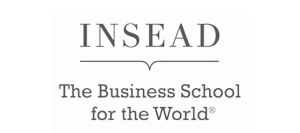Just before Christmas, I was reflecting on a difficult few weeks. After working for 12 straight days, my team and I made it to the weekend and the holiday period.
This challenging period got me thinking about how we help founders succeed, and it made me think about why we got into this line of business.
Since Rich and I set out on our path together as business partners, and I joined MOHARA, we’ve always talked about this concept of ‘think like a founder’. Part of it meant product focus and user focus. And that’s all very true but it also means ownership. Founders care, and they need us to care. While running my own start-up, I teamed up with Rich because he cared.
This led me to think about three reflections on the essential elements of supporting founders.
Reflection 1: We’re in it together
Back in 2011, I was armed with some PowerPoint slides, wireframes and a dream, and Rich was looking for customers for his new product development agency. When I met Rich, it was immediately clear he cared about making my business a success – that was his core drive. This was unique, and it’s why I chose to work with his team.
In 2019 at MOHARA, caring about our customers is one of our guiding principles – we care about every piece of work as if it was our business.
As an organisation, we care about the little things, so we can try and stop them from turning into big things. Sometimes it doesn’t work, and then we put in the extra effort. But we want to own what we do and be proud of it, whatever it is. It feels good to own what we do too. That’s the first reflection – owning what we do is at the core of who we are.
We proved that with one of our customers last weekend, during 12 solid days of work to get a project delivered. The circumstances were challenging: the deadline loomed, the pizza boxes were mounting up, and the Starbucks loyalty card was getting some heavy use.
What got us through this situation?
It was because we cared about the project, we cared about the entrepreneur, and we cared about getting things right. There wasn’t a sense of frustration in the office, but a sense of purpose. This is what steered us to a good outcome.
Reflection 2: It might be hard for us, but it’s ten times harder for the founder
Internally, we talk about the importance of communication all the time, but it’s not always easy to do in the heat of a project. And this leads to my second reflection: showing empathy to founders is critical.
Founders are often so removed from building the product, it’s painful for them. We see micromanagement from founders – that’s because it’s so hard to let go and leave someone else in charge of your baby.
When I was a founder, I felt it too. At MOHARA, we always try to remember that and think about the stresses a founder is going through. It is a founders’ product, or business, and it is what they live and breathe.
Solid, clear communication is what matters. No whitespace. Whitespace breeds uncertainty and risk. A founder dreads that terrible feeling of not knowing what is happening, and not being able to do anything about it. Imagine a hospital where a loved one is rushed into surgery but nobody will tell you what’s happening. It’s enough to drive a parent wild, it’s so painful.
And that’s also what it means to think like a founder – and think about what founders need. You need reassurance that we’re looking after your baby, we have its best interests at heart, and we’re being really clear about what is happening.
Reflection 3: Give founders power
And my last reflection is around recognising this powerlessness that founders feel and trying to put as much power back into their hands as quickly as possible.
When founders have nothing to do, they make trouble. I would be very worried if a founder were sitting back, relaxed, while everyone else was running around. We need to empower founders to contribute to their baby’s development.
We work in collaboration as a team – part of teamwork is making sure everyone is involved. And that sense of purpose, of control, of contribution, is what founders need.
Final thought
To summarise my reflections, comparing my time as a founder with our experience of working with nearly 100 founders at MOHARA, this is more of what ‘thinking like a founder’ means to us at MOHARA:
- Ownership. We aim to take ownership, whether it’s a little thing or a big thing.
- Communication. Clear, transparent and regular communication gives founders no reason to worry.
- Empowerment. We want to involve founders and work together as a team. Early integration, engagement, and making them feel they can contribute to their most important work passion.
These ideas are deeply embedded in the MOHARA “Eight Fundamentals of Repeatable Quality”, but I think it’s always valuable to reflect on and review them, particularly when we’ve gone through a difficult period.
We would love to hear the thoughts of any founders out there. You can get in touch here.











